/THE ENDANGERED SPECIES PROJECT
Amanda Gibson
Material Needs 2023
September 14 - October 29, 2023
materials funded: foam, wood, metal, plastic, paint, glues, fabric, PVC piping, tools
/STATEMENT
Animals have fascinated me since I was small. I remember writing reports on various endangered species for school and I was always excited to learn new facts and information. However, even then, I knew there is a big difference between learning about an animal from a book and seeing said animal with your own eyes. This is where “The Endangered Species Project” comes in.
“The Endangered Species Project” is a project that is years in the making, and with the goal of growing and evolving further from here. The puppets made with the support of ArtsWorcester’s Material Needs Grant will be used to create a travelling educational show that will teach people of all ages about the plight of various endangered species by bringing them face to face with life-sized renditions of these amazing animals. The current lineup includes an African Painted Dog, a Kakapo, a Vaquita, a Chimpanzee, and a Tiger, all built as close to actual size as I could make them. The puppets are made using a variety of materials including foam, wood, metal, plastic, paint, glues, fabric, and PVC piping. They are built to be lightweight and durable with the hope that they will have long lives. Once the show is established, I plan to create and add more puppets to the lineup so as to spread knowledge of even more endangered animals.
There is often a disconnect between us humans and the natural world. Most of us will never come face to face with a Vaquita or an African Painted Dog and that distance can make them seem less “real.” Some people may think “Why should I care about something that doesn’t affect my daily life?” The world is so much bigger and more connected than we often realize, and protecting endangered species and their environments is crucial to our survival as well as theirs. “The Endangered Species Project” endeavors to bridge the gap by bringing these animals (in puppet form) into our lives.
/ABOUT THE ARTIST
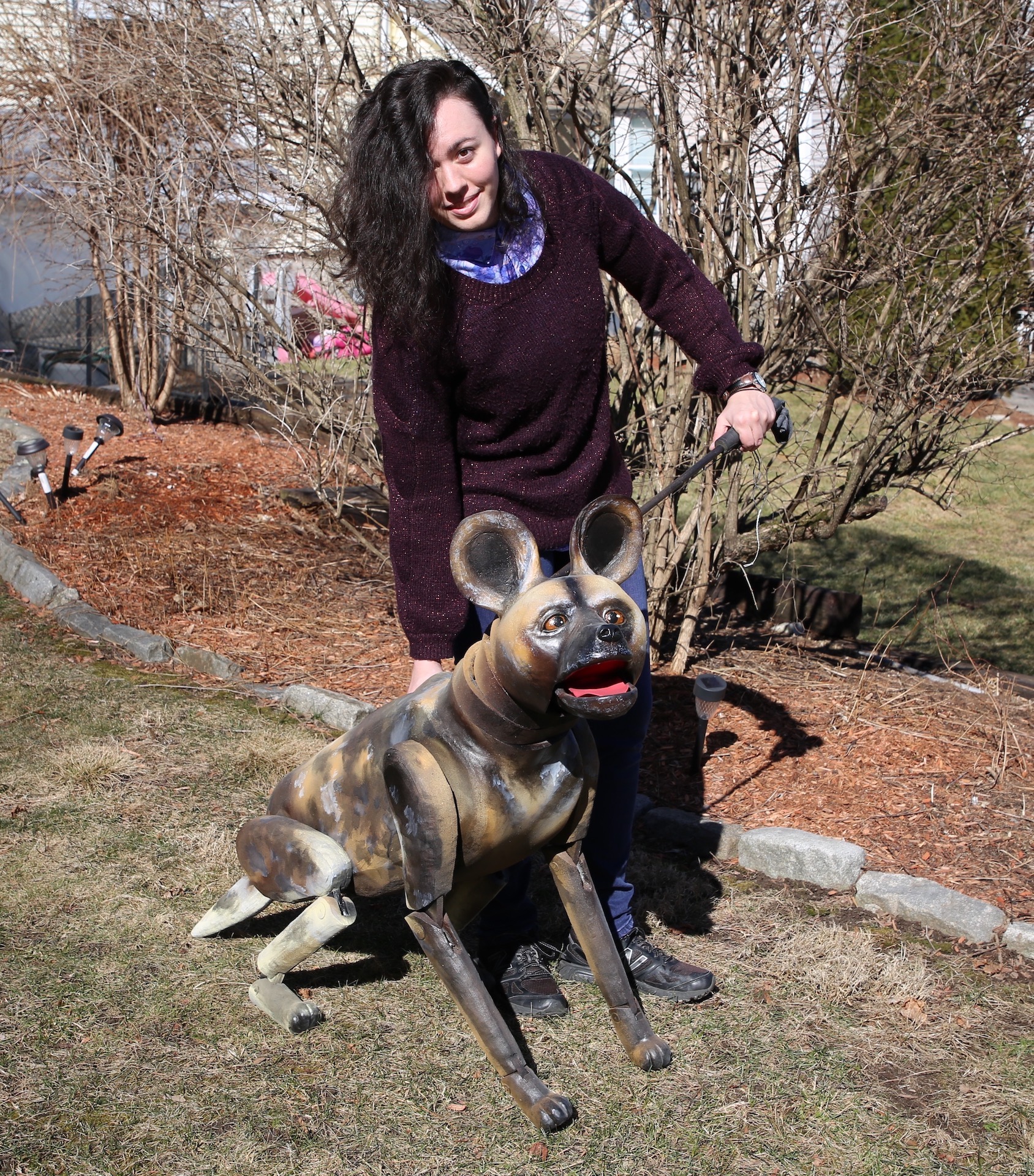
Amanda Gibson
Amanda Gibson is an artist and craftsperson living and working in Worcester, Massachusetts. She received a BFA in Illustration from the Massachusetts College of Art and Design. Utilizing her illustrative skills, she has been working as a puppet maker and scenic builder in the world of theater. She also creates props, cosplays, portraiture, and miniature illustrative dioramas.
Storytelling has always been a driving force in Amanda’s work and a major reason for her study of illustration and later pursuit of the field of puppet building, puppetry, and miniature environment design. Conservation is also a passion of hers and she is very excited to share the puppets for her show “The Endangered Species Project” with the world so as to create connections between people and the plight of these animal’s real-life counterparts.
/EXHIBITED WORKS
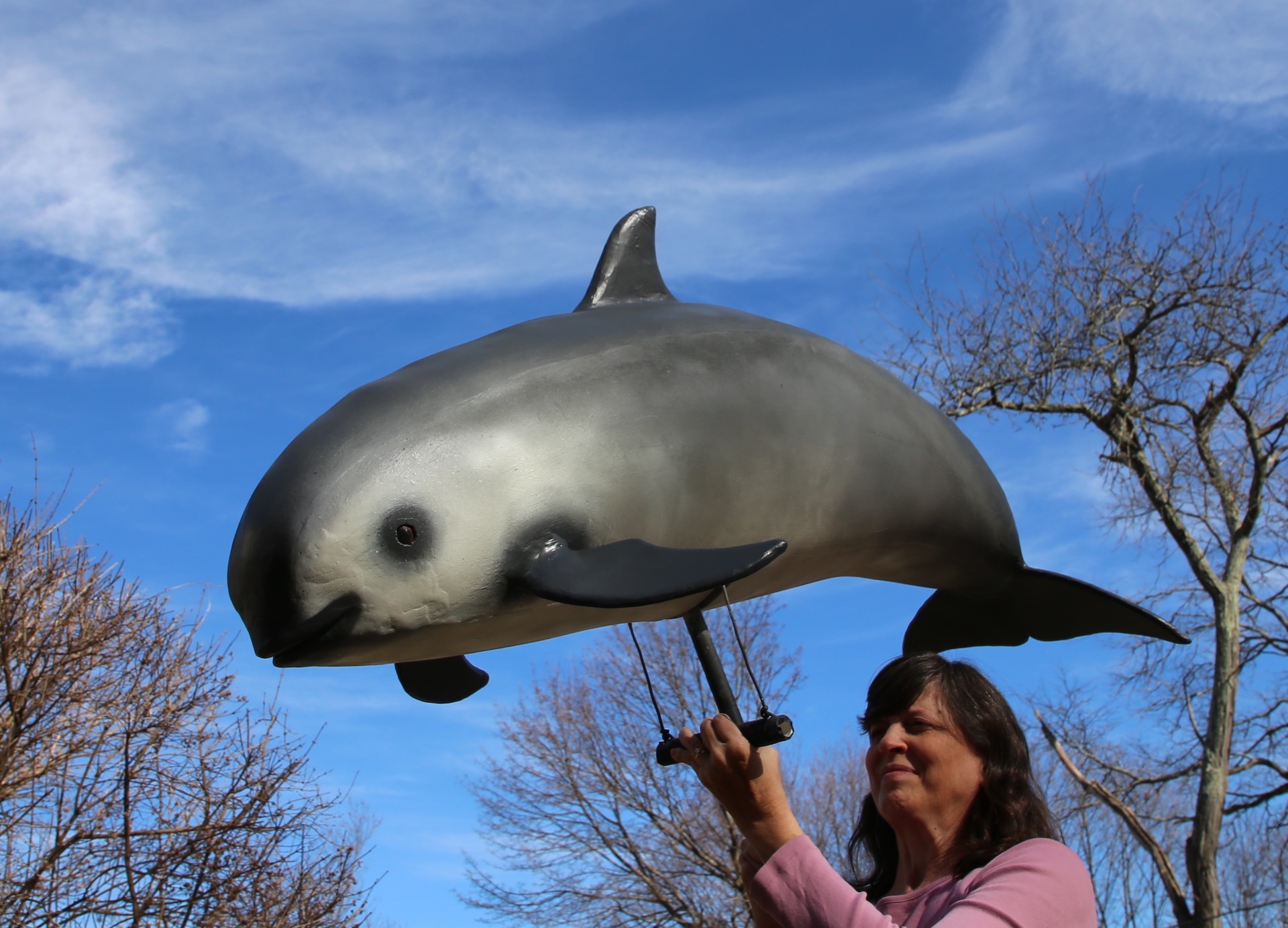
Vaquita
various foams, wood, metal, plastic, paint, glues, and PVC piping
22″ x 22″ x 48″
2022
The Vaquita is the only puppet in the set representing an aquatic mammal. Wanting to break away from parade puppets that must be viewed above the puppeteer’s head, I built this puppet so that it could be lowered to the audience’s level and remain upright. When I first heard about Vaquitas, a quick internet search said that there were around 20 left. Today, just two years later, there are around 10. Vaquitas are on the edge of extinction because they are caught and drowned in gillnets used by illegal fishing operations in marine protected areas within Mexico’s Gulf of California.
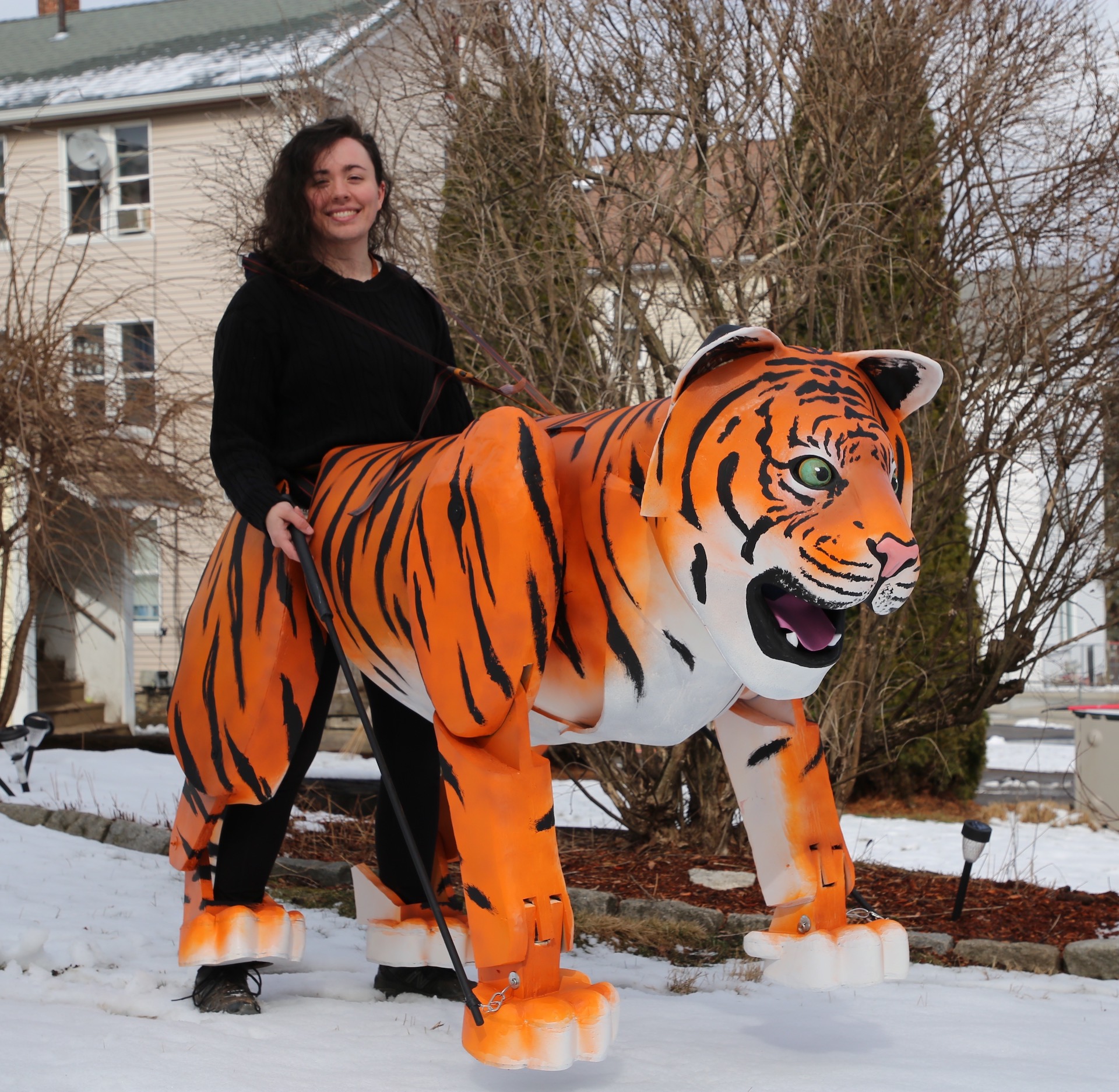
Tiger
various foams, wood, metal, plastic, paint, glues, fabric, and pvc piping.
43″ x 24″ x 105″
2023
The creation of the Tiger puppet was a monumental undertaking. In order to make a puppet as close to life-size as possible while still being puppeteered by one person, it had to be sturdy, light weight, and comfortable. I had actually attempted to first make this puppet years ago but found that my skill level at the time was not enough to fully accomplish it. It is gratifying to see how far I’ve come since then. The bases of the head and ribcage were part of that original attempt. All species of tiger are endangered with only around 4,500 remaining.
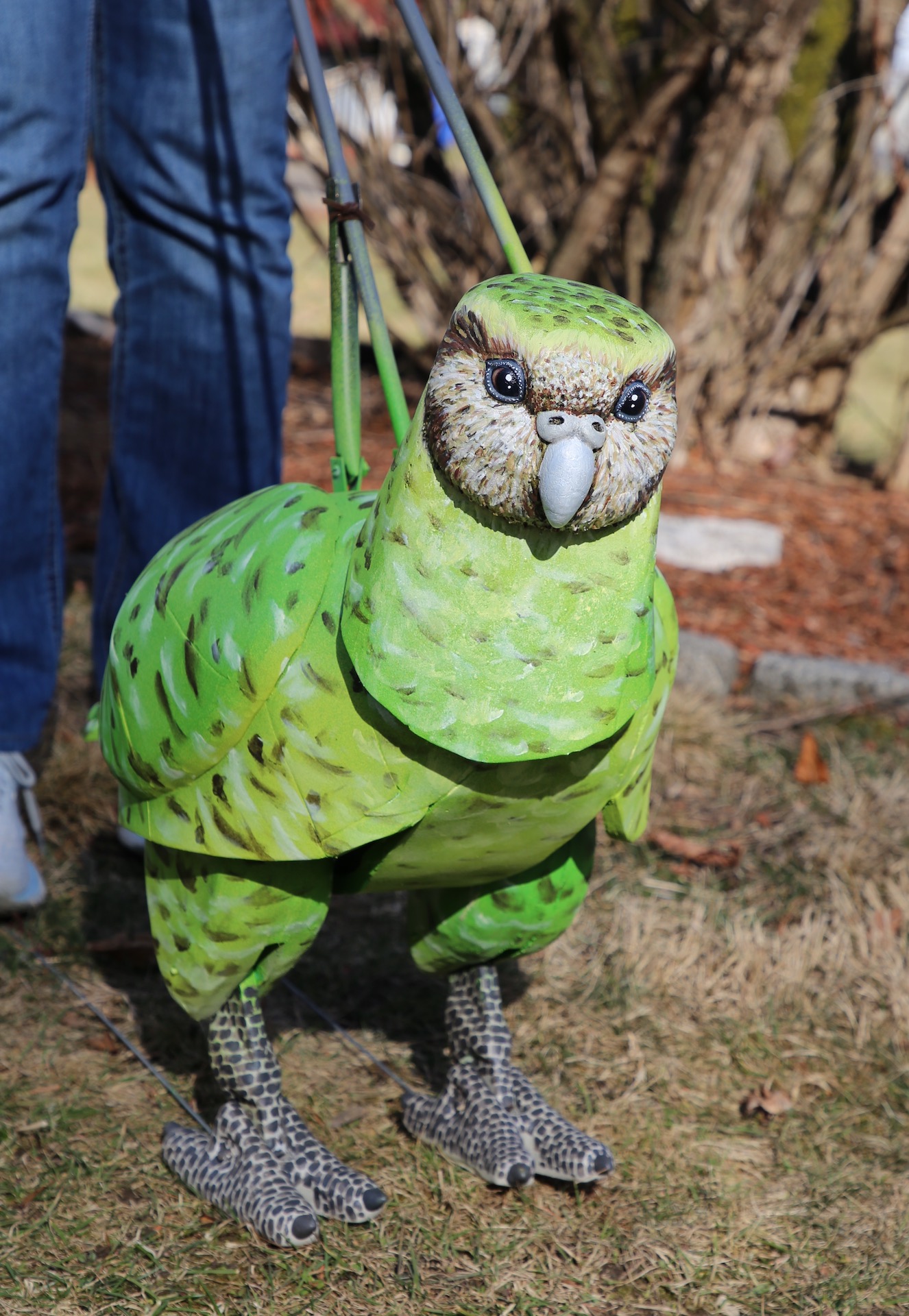
Kakapo
various foams, wood, metal, plastic, paint, glues, fabric, and PVC piping
18″ x 12″ x 43″
2022
I was especially excited to make the Kakapo puppet as I had never made a walking puppet like this before. Native to New Zealand, the Kakapo is the world’s only flightless parrot. Critically Endangered, there are 248 known individuals as of 2023. Invasive mammalian predators, such as cats, rats, ferrets, and stoats almost wiped out the Kakapo as the birds had no natural defenses against them. Known individuals are named, tagged and confined to four small New Zealand islands, all of which are clear of such predators.
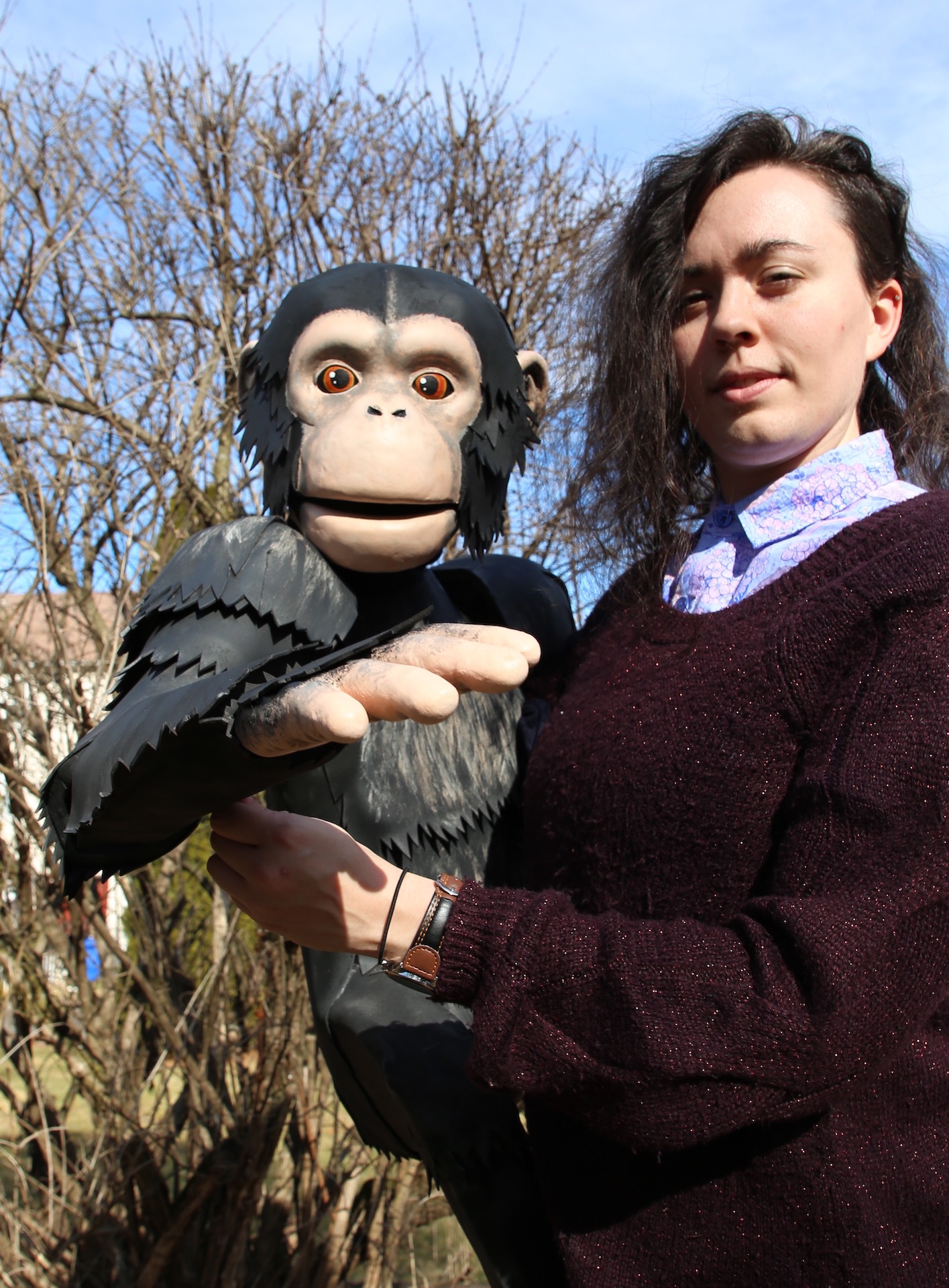
Chimpanzee
various foams, wood, metal, plastic, paint, glues, fabric, and pvc piping.
33″ x 23″ x 17″
2023
Chimpanzees are not an animal that generally comes to mind when you think of an endangered species. It certainly was not an animal that I originally planned to include in this series. My aunt suggested it and upon looking into it, I found that it was, in fact, endangered. Illegal wildlife trade and poaching are prominent threats to Chimpanzees, with bushmeat becoming a commercialized commodity to satisfy the appetites of wealthy urban residents of Central and West Africa. Infant chimpanzees are frequently taken alive and sold in cities as pets. Outbreaks of diseases like Ebola are also a threat.

African Painted Dog
various foams, wood, metal, plastic, paint, glues, fabric, and PVC piping
32″ x 15″ x 55″
2021
The African Painted Dog was the first puppet created in the series. In fact, it was used as proof of concept when applying to Arts Worcester’s Material Needs Grant. A lot of the mechanics used in this puppet informed the build of the Tiger puppet. Threats to African Painted Dogs include accidental and targeted killings by humans, viral diseases like rabies and distemper, habitat loss, and competition with larger predators like lions.
Never miss an exhibition or event.
Get updates when you sign up for ArtsWorcester emails.
